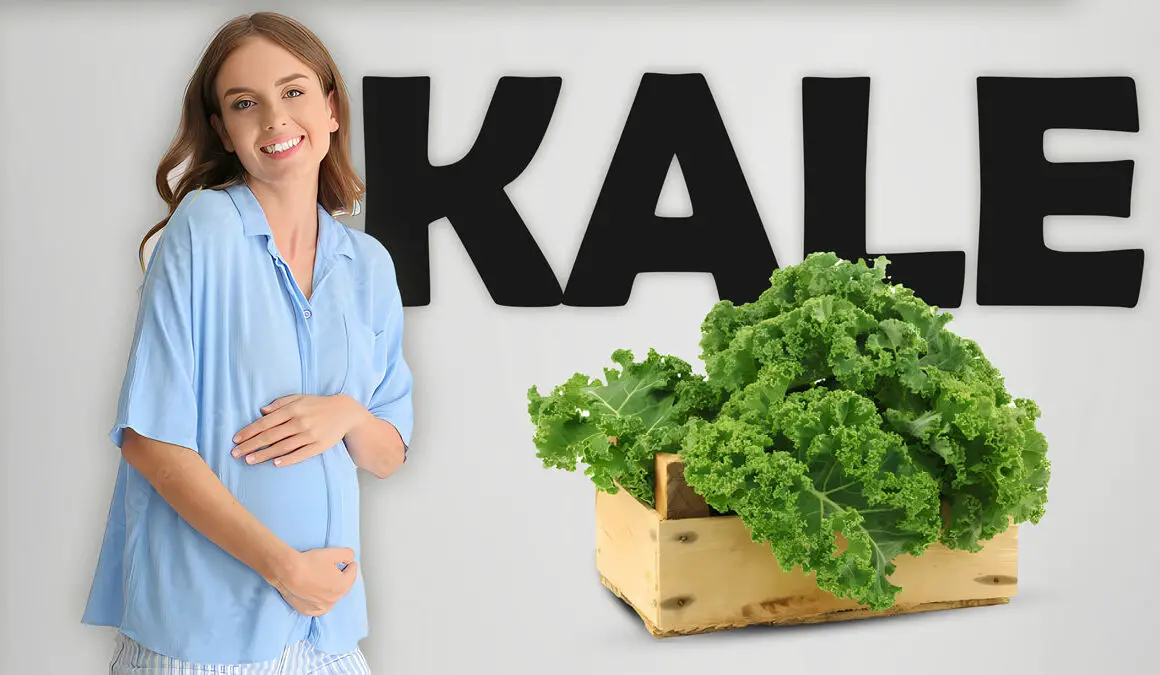Kale is a nutritious vegetable that is eaten raw in salads and toppings. Every fruit and vegetable, especially during pregnancy, should be thoroughly washed and cleaned before eating raw. It is rich in nutrients and vitamins.
Kale at a glance
- Delicious
- Healthy
- Rich in fiber, calcium, vitamins A, C, and K
- Kale can be consumed raw, in soups and stews, or Smoothies
- It should be completely broken down to minimize the risk of toxoplasmosis.
Can you Eat kale During Pregnancy?
It is important to note that eating kale during pregnancy is not advised. It contains a type of phytochemical called oxalic acid, which can be harmful to the developing baby in the womb. If you do decide to include kale in your diet, be sure to eat only the leaves and never the stalks.
Another concern is that kale may interfere with iron absorption. Iron deficiencies are more common in women who are pregnant or breastfeeding. Therefore, it’s best to avoid eating too much kale if you’re in one of these conditions, or even if you’re just looking for a healthy, nutritious snack. Instead, opt for other leafy greens like lettuce and spinach.
Finally, research has shown that consuming too much raw cruciferous vegetables (like broccoli and Brussels sprouts) may actually increase your risk of cancer and gastrointestinal diseases like Crohn’s disease.
You can add kale to your diet in the following ways:
- Although low in calories, kale is packed with nutrients like calcium.
- Kale can be used in stir-fries, soups, or stews
- Kale can be used as a nutritious alternative to potato chips
- Kale is served with Kasler and various types of sausages such as Bregenwurst (smoked sausage), cabbage sausage, boiled sausage, or Knacker.
During pregnancy, raw sausage can contain dangerous pathogens. But when it comes to sausage with kale: By the time you cook the sausage and sausage in the kale, it’s hot enough to kill bacteria. Cabbage is well cooked with sausage. It is okay to eat it occasionally during pregnancy.
Three main types of kale:
- Lacinato (Black, Dinosaur, or Tuscan): This variety is characterized by dark, bumpy leaves, and has a harder texture and a meatier taste. It is used in chopped salads and when it is cut into ribbons and fried.
- Curly: This green kale is used in stir-fries, smoothies, and soups.
- Red (Russian or Siberian ): this variety with purple streaks is used in soups and stir-fries.
What are the Benefits of Eating Kale During Pregnancy?
Below are the nutrients rich in kale along with their benefits:
Fiber
Kale is rich in fiber, which is ideal for smooth digestion. The fiber in this vegetable prevents constipation and stomach problems
Calcium
It helps build stronger bones and teeth in the growing child
Vitamin A
Improves the immune system of the mother and fetus.
Vitamin C
Vitamin C in cabbage helps you stay away from infections such as coughs and colds during pregnancy.
Vitamin K
It keeps blood vessels strong during pregnancy
Is spinach or kale better for pregnancy?
Spinach is rich in calcium, fiber, protein, iron and vitamin A more than kale. In comparison, kale is rich in vitamin C, K and heart-healthy flavonoids. So both provide several nutrients.
Can Kale be Harmful to Pregnant Women?
High consumption of kale can produce nitrates in it. And it can be carcinogenic in large amounts. Of course, kale has very little nitrates that would have to be eaten every day for several weeks to be harmful. Due to the high content of vitamin K, kale is very useful for the mother and the fetus.
Is cooked kale healthier or raw?
Cooking kale may reduce its minerals, vitamin C, and antioxidants. Therefore, it is better to steam vegetables to preserve nutrients.
Conclusion
If you are pregnant, if possible, you should only eat freshly prepared kale and not reheat it because, just like spinach, the nitrate content of kale increases as a result of storage and heating.
The percentage of vitamin K in kale is higher than other leafy vegetables. Vitamin K helps keep blood vessels strong during pregnancy.







